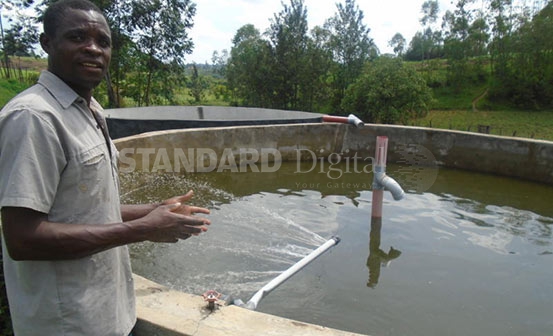×
The Standard e-Paper
Kenya’s Boldest Voice

Majority farmers spend most time and resources preparing their farms for the planting season. But few, if any, prepare for too much rain. After all, rain is a farmers' best blessing.
Last year, Joyce Makaka lost more than 350 of her female fish to floods. This was after heavy rains hit Kakamega County where she has established a fish empire, Jafi enterprises. Makaka has nine fish ponds, including hatcheries.